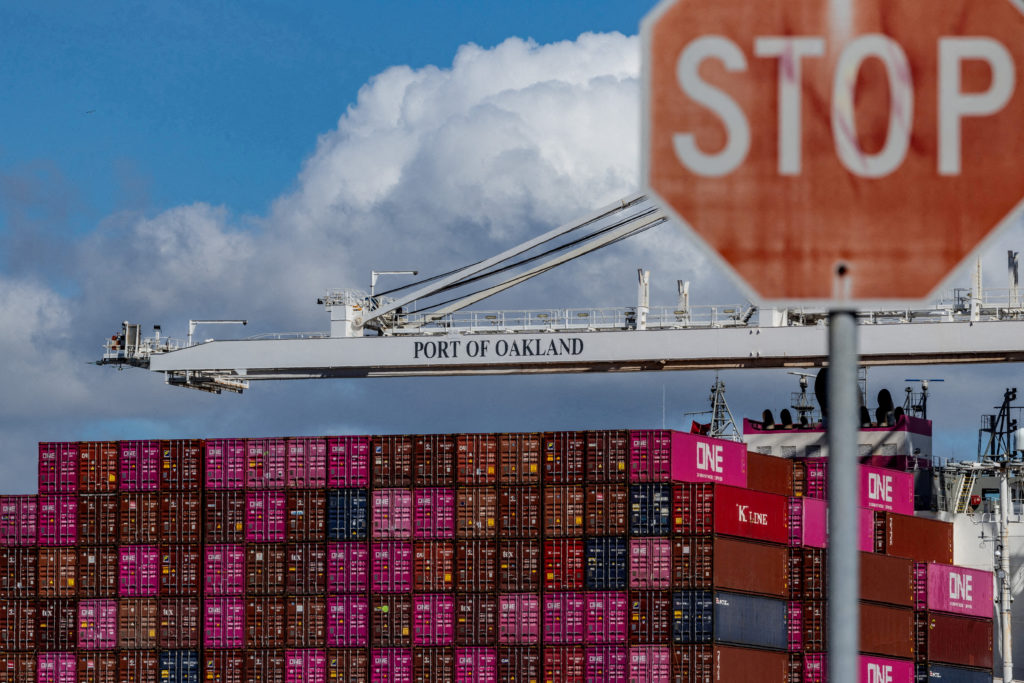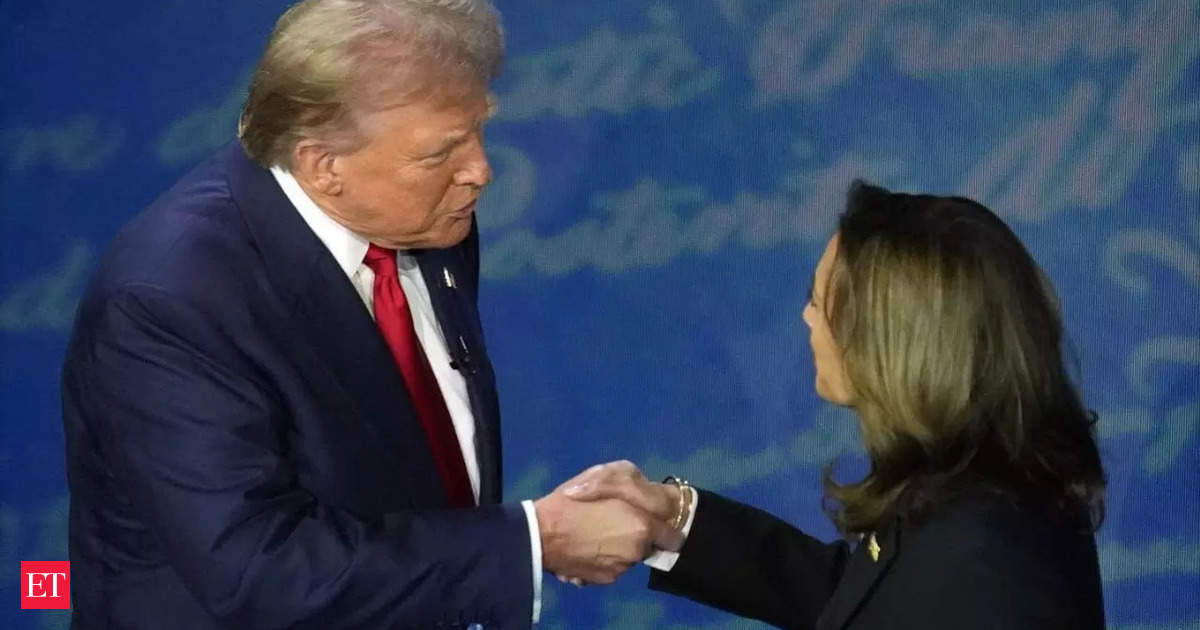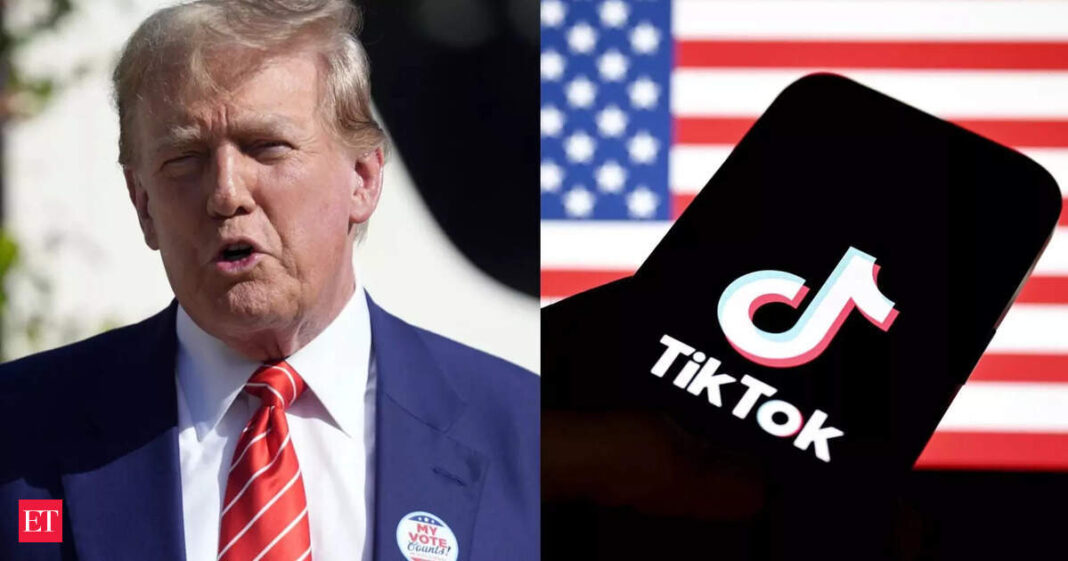## TikTok’s Fate Hanging in the Balance: Will Trump Deliver a Digital Axe After April 5th?
The countdown is on. April 5th looms large for TikTok, the wildly popular social media platform, casting a shadow of uncertainty over its future in the United States. President Trump, citing national security concerns, has issued an executive order threatening to ban the app. But what does this mean for millions of American users glued to their screens, and what’s the legal battleground surrounding this potential digital takedown? We break down the latest developments, Trump’s plans, and the legal hurdles standing in the way of a TikTok ban.

Is TikTok Getting Banned After April 5? Here’s What US President Donald Trump Plans to Do and What the Law Says
Project Liberty and Potential Buyers

Project Liberty, a bid led by Frank McCourt, the former owner of the Los Angeles Dodgers, has emerged as one of the major contenders for acquiring TikTok’s U.S. operations. The proposal has been backed by prominent business figures such as Kevin O’Leary, known for his role as an investor on “Shark Tank,” and Alexis Ohanian, one of the co-founders of Reddit. The bid aims to ensure the platform’s future in the U.S. while addressing the national security concerns raised by the Trump administration.
- Project Liberty: Led by Frank McCourt, with support from Kevin O’Leary and Alexis Ohanian
- Other Potential Buyers: Jesse Tinsley (Employer.com founder) and YouTube personality MrBeast (Jimmy Donaldson) have shown interest but have not yet submitted formal offers.
- Perplexity AI: An American search engine has proposed a merger to bring TikTok under its domain.
- National Security: Concerns over ByteDance potentially sharing data with Chinese authorities have intensified.
- Legal and Political Uncertainty: The debate over the TikTok ban is ongoing, with lawmakers pushing for a more formalized response, including the introduction of the Extend the TikTok Deadline Act.
- Impact on Small Businesses and Creators: A potential ban would significantly affect the millions of users who rely on TikTok for their livelihood and creative expression.
- April 5 Deadline: Unless ByteDance divests TikTok’s U.S. operations by this date, the app could face a ban.
- Trump’s Flexibility: The president has indicated that he may grant another extension if the divestiture process is not complete by the deadline.
- Legislative Approach: Three Democratic senators—Edward J. Markey (Massachusetts), Chris Van Hollen (Maryland), and Cory A. Booker (New Jersey)—have urged Trump to work with Congress to establish a long-term solution.
- Economic Impact: Businesses and content creators that utilize TikTok for marketing and audience engagement face uncertainty if the app is banned or sold.
- Digital Market Disruption: The shift to a new owner or the complete removal of the app could disrupt the digital market and affect user engagement and content creation patterns.
- Corporate Response: Companies like Oracle, Apple, and Google could face legal issues if the divestiture is not completed, as per the legislation passed by the U.S. government.
- Legal Framework: The Protecting Americans from Foreign Adversary Controlled Applications Act of 2024 requires ByteDance to divest TikTok or face a ban.
- Political Influence: President Trump’s stance and any potential legal challenges from both political and corporate entities could further complicate the situation.
- Corporate Responses: Companies like Oracle, Apple, and Google are navigating the legal waters carefully, awaiting a final decision from the Trump administration.
- Expert Insight: Unionjournalism’s panel suggests that a merger with an American company may be the most likely outcome, balancing national security concerns with the economic impact.
- Corporate Strategy: Potential buyers are carefully considering their offers to ensure they address all legal and regulatory requirements.
- Legal Strategy: ByteDance is likely to negotiate a deal that ensures compliance with U.S. regulations while safeguarding its business interests.
- Project Liberty: The bid aims to ensure that TikTok continues to operate in the U.S. under American control.
- Perplexity AI: The proposal for a merger with Perplexity AI offers a path to integration rather than a complete divestiture, which could address national security concerns while preserving the platform’s integrity.
- Impact on Users: The outcome of these negotiations could significantly influence the app’s user experience and content creation environment.
- April 5 Deadline: The critical date for TikTok’s fate, with the potential for further extension by Trump.
- Legal and Legislative Actions: The Act requires a divestiture of TikTok’s U.S. operations by January 19, 2025, with potential repercussions for non-compliance.
- Future Outlook: The future of TikTok hinges on the outcome of the negotiations and the potential for a merger or acquisition that satisfies both national security and economic interests.
Implications and Concerns
National security remains the cornerstone of the debate surrounding TikTok’s future in the U.S. The primary concern is the potential for ByteDance, the Chinese parent company, to provide Beijing with access to American users’ data. Despite ByteDance’s repeated denials, the U.S. administration is not satisfied with the current safeguards and is pushing for a divestiture of TikTok’s U.S. operations.
The Timeline and Political Maneuvers
The future of TikTok in the U.S. remains uncertain as the current deadline of April 5 approaches. Despite ByteDance’s efforts to comply with U.S. demands, the sale of the app’s U.S. operations has yet to be finalized. President Donald Trump has hinted at the possibility of extending the deadline if a sale cannot be completed by the initial date.
Impact on the U.S. Economy and Digital Market
The potential ban and subsequent sale of TikTok have broader implications for the U.S. economy and the digital market. The app’s user base has grown exponentially, and many small businesses and content creators have relied on the platform for marketing and audience engagement. Any abrupt changes could disrupt these ecosystems and potentially impact the broader economy.
The Extent of Political and Legal Challenges
The debate over the fate of TikTok involves a complex interplay of political and legal considerations. The federal law allows the president to extend the divestiture deadline by 90 days, but this has not been guaranteed. The passage of the Protecting Americans from Foreign Adversary Controlled Applications Act of 2024 has raised the stakes, with the potential for a renewed ban if the required divestiture does not occur.
Analysis from Unionjournalism’s Expert Panel
Unionjournalism’s expert panel, comprising industry leaders and legal experts, has provided insights into the potential outcomes and implications of the TikTok situation. According to our sources, the key stakeholders are likely to seek a compromise that ensures national security while preserving the economic and social benefits of TikTok. The legal landscape remains fluid, with political and corporate interests aligning in complex ways.
The Role of Project Liberty and Perplexity AI
Project Liberty, spearheaded by Frank McCourt, has garnered significant support from business leaders, aiming to secure the future of TikTok in a manner that aligns with U.S. interests. Meanwhile, Perplexity AI, an American search engine, has suggested a merger, highlighting a strategic move that could integrate TikTok into a larger, more secure platform.
Timeline and Future Outlook
The timeline for TikTok’s future in the U.S. continues to be marked by uncertainty. While the initial deadline of April 5 looms, the potential for an extension from President Trump offers a sliver of hope for a resolution. The legal landscape, as outlined by the Protecting Americans from Foreign Adversary Controlled Applications Act of 2024, adds another layer of complexity to the negotiations.
Conclusion
The Uncertain Future of TikTok: A Looming Ban?
As the clock ticks down to April 5, the US government’s deadline to decide on TikTok’s fate, the fate of the popular social media platform hangs in the balance. According to recent reports, US President Donald Trump plans to take drastic action, potentially banning TikTok due to concerns over data security and national security. The article highlights the key points, including the President’s alleged plans to review a bill that would effectively ban the app, the threat of government shutdown, and the potential implications on the country’s tech industry. The article also delves into the law, stating that Congress has been working on a bill that would force ByteDance, TikTok’s Chinese parent company, to sell its US operations.
The significance of this topic lies in its far-reaching implications for the tech industry, national security, and user behavior. The ban would not only impact TikTok but also set a precedent for other social media platforms, forcing them to reevaluate their data collection and storage practices. Moreover, the move could have a ripple effect on the global economy, with potential consequences for small businesses and entrepreneurs who rely on the platform for marketing and engagement. As the US government weighs its options, it remains to be seen how TikTok will navigate this uncertain landscape.
As the clock ticks down to the deadline, one thing is clear: the future of TikTok is far from certain. Will the app be banned, or will it find a way to mitigate the concerns of lawmakers? One thing is certain, however: the decision will have a lasting impact on the tech industry, user behavior, and the global economy. “The fate of TikTok is not just a battle between a social media platform and the US government – it’s a battle for the future of the internet itself,” as one expert aptly put it. The world is watching, and the outcome will be felt for a long time to come.
